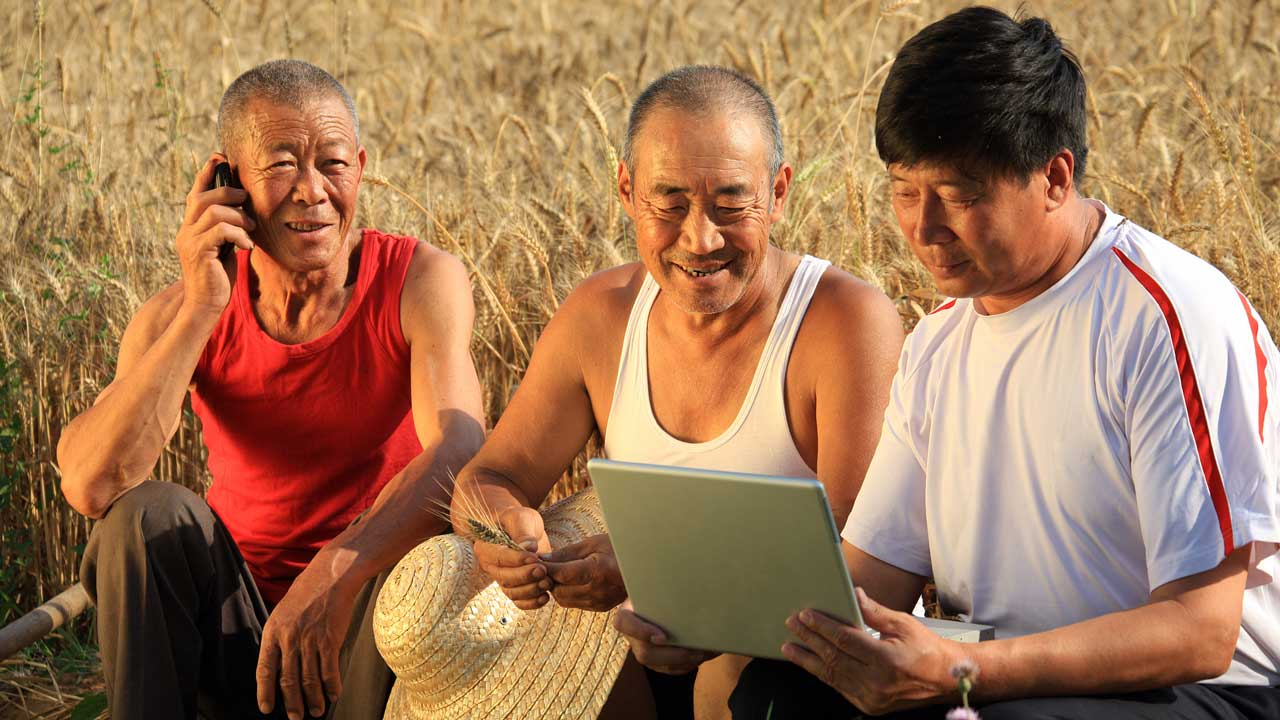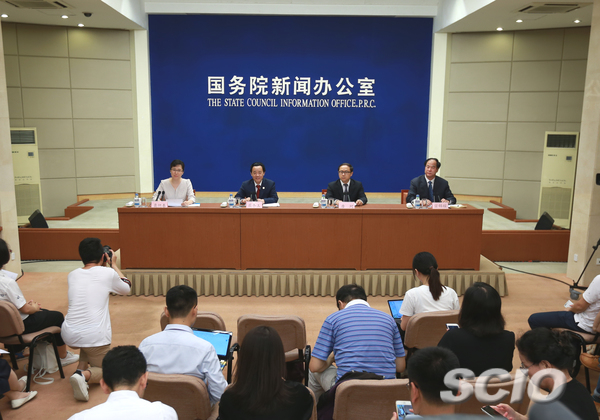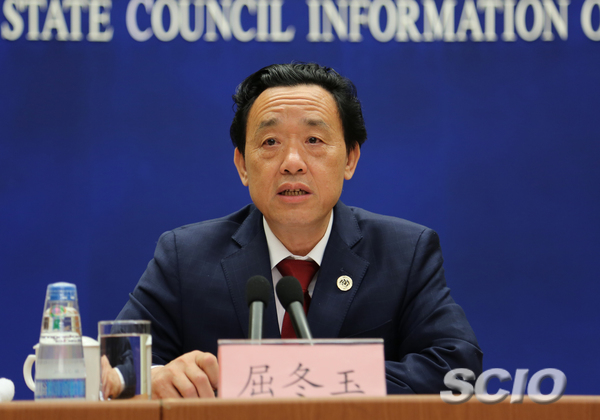
Internet
23:03, 02-Jul-2018
How is China reshaping its farms with the Internet?
Updated
22:31, 05-Jul-2018
By Gong Zhe

China is reshaping its agricultural industry with the use of the Internet and other digital technologies, the country's Ministry of Agriculture and Rural Affairs said on Monday.
Vice Minister Qu Dongyu met the press after the State Council reviewed a report on China's implementation of its "Internet+Agriculture" policy.
Nearly half of the country's population are farmers, whose income is well below that of urban dwellers – the Internet could hold the keys for growing their earnings.
While the use of Internet is common in cities, it takes the government big efforts to apply the information technology (IT) in farms.
So what kind of changes is the Internet bringing to China's farmers?

Vice Minister Qu Dongyu of China's Ministry of Agriculture and Rural Affairs briefs the media at a State Council press conference on July 2, 2018. /SCIO Photo
Vice Minister Qu Dongyu of China's Ministry of Agriculture and Rural Affairs briefs the media at a State Council press conference on July 2, 2018. /SCIO Photo
Mobile access
"Teaching farmers to use smartphones may sound ridiculous, but in fact it's an important task that has a long-term impact on China's agriculture," Qu said.
"You guys sitting here are probably raised in cities, so you may not know about how farmers are using their phones," he added.
According to data from China Internet Network Information Center, only 34 percent of people living in rural China have access to Internet, while 69 percent of urban people have an online presence.
It's hard to grasp the vast business opportunities brought by the Internet if you are not even connected. That's why the Chinese government is pushing mobile carriers to teach farmers use the phone network.
"To the farmers, the smartphone should belong to the means of production, in addition to contact," Qu said.

Vice Minister Qu Dongyu of China's Ministry of Agriculture and Rural Affairs briefs the media at a State Council press conference on July 2, 2018. /SCIO Photo
Vice Minister Qu Dongyu of China's Ministry of Agriculture and Rural Affairs briefs the media at a State Council press conference on July 2, 2018. /SCIO Photo
Farmers can get online tips for better yields, entertainment like live-streaming (even becoming an online sensation themselves) and most importantly, a better way to get their crops sold.
"The e-commerce businesses have been selling industrial products to farmers for a long time. But to our ministry, it'll be better if they could help farmers 'upload' their products to the cities," Qu told reporters.
"We would like to see farmers using their smartphones to do business online."
Digital farms
IT is also reshaping the production of crops, especially modern tools like satellites and Internet of Things (IoT).
China has launched its own positioning satellite – the BeiDou Navigation Satellite System, as an answer to the GPS.
The satellites can provide better accuracy than the current GPS business solutions, helping vehicles to move exactly as the farmers wish.
In addition to positioning, China also has Gaofen satellites to monitor farms from above. The Gaofen-6, launched just a month ago, aims to scan farmlands.
Nanochips and blockchain technology are also used to track the lifecycle of agricultural products.
Value of data
The wide use of IT has yielded another benefit: Big data. The ministry is currently building four online platforms to collect and sort the data on food safety, pesticide usage, crop price and farming enterprises.
"The data amount is so huge that we are still at the beginning of our work. But we are already seeing positive results," Qu said.
"The ministry's job will eventually be transferred to a data-driven service," he added.

SITEMAP
Copyright © 2018 CGTN. Beijing ICP prepared NO.16065310-3
Copyright © 2018 CGTN. Beijing ICP prepared NO.16065310-3